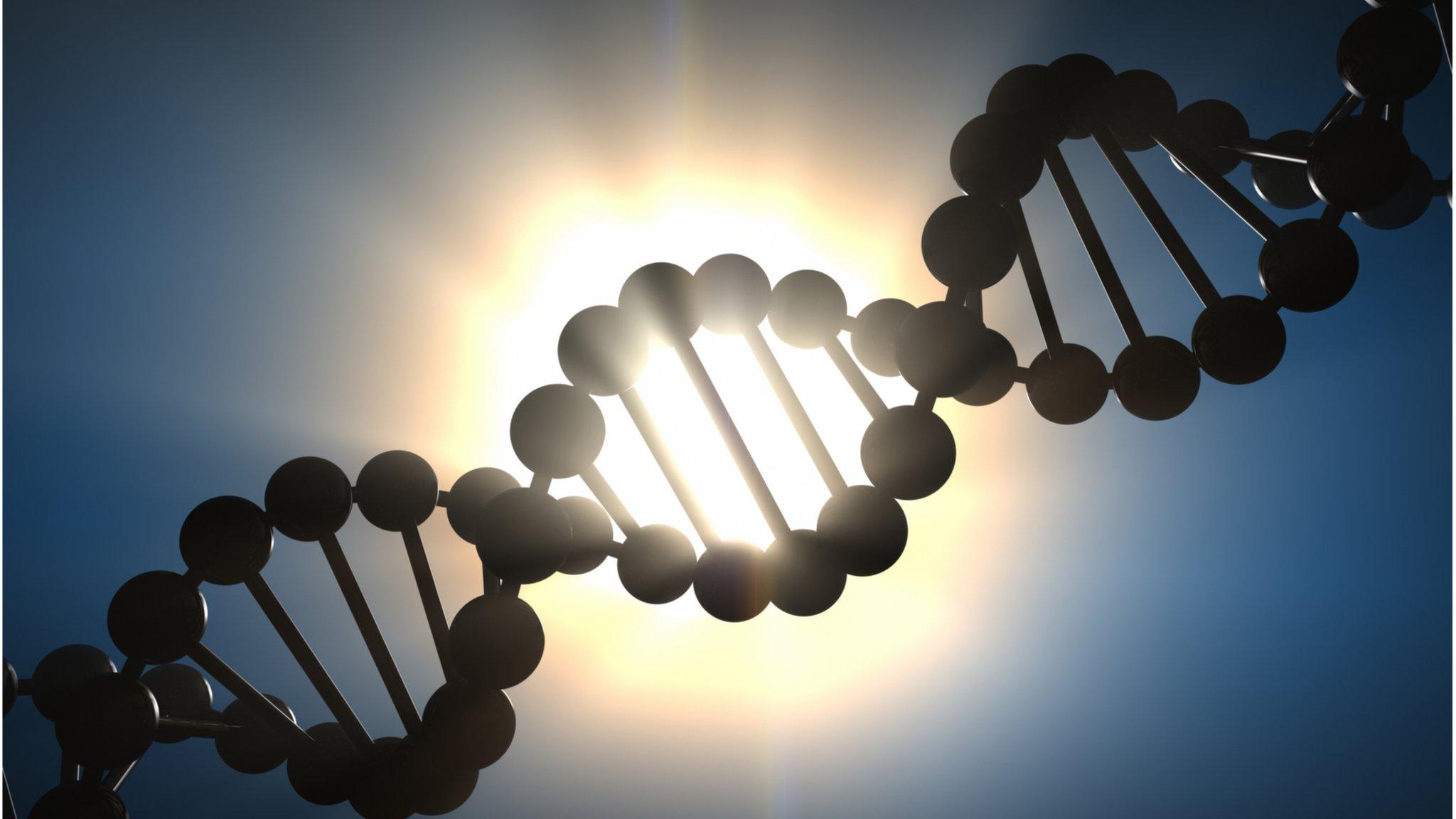Sisters help launch cancer study aiming to end chemotherapy
- Published
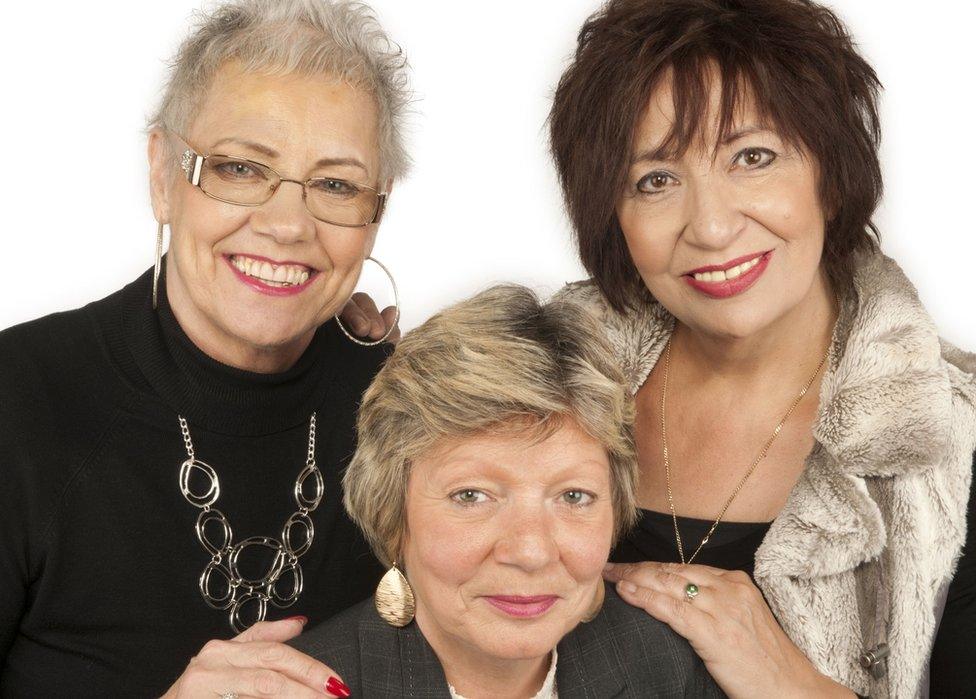
Mary, Sandra and Kelly have had their DNA analysed
The first patients have had their DNA analysed in a massive study that aims to help replace chemotherapy.
They include three sisters who developed breast tumours within 15 months of each other.
The 100,000 Genomes Project in England, external will look at their DNA, and that of thousands of other patients, to help the search for precision treatments and understand how tumours develop.
Cancer Research UK said the project was "very exciting".
In November 2013, Mary Lloyd was diagnosed with breast cancer, as was her younger sister Kerry two months later. In February the following year their sister Sandra was diagnosed too.
Mary, 61 and from Northampton, told the BBC News website: "It was really unbelievable.
"I had just retired and made plans, then to find out Kerry also had breast cancer - she's got two children still at school - it was just awful.
"Sandra had almost prepared herself [for her diagnosis] and she was devastated as well.
"But because we're sisters together we've been able to support one another. That's really important as the treatment is horrendous."

Breast cancer detected on MRI scan
Cancer is a genetic disease caused by mutations in our DNA that lead to cells dividing uncontrollably.
The sisters are taking part in the 100,000 Genomes Project, run within the NHS, which is trying to understand the mutations that cause or increase the risk of cancer.
It will also determine the drugs that can target tumours. Herceptin works only in patients with specific mutations.
"It's classed as the beginning of the end of chemotherapy," said Dr Julian Barwell, a consultant in clinical genetics at the the University Hospitals of Leicester NHS Trust.
He told the BBC: "This is the first step for the NHS into genomic medicine. If successful it will give individual tumour profiles and identify which drugs are likely to benefit you. It's hugely exciting."
Precision
Not every patient will benefit from the study, but the understanding of the mutations that lead to their cancer will help in the development of "precision therapies" targeting the weak spots in tumours.
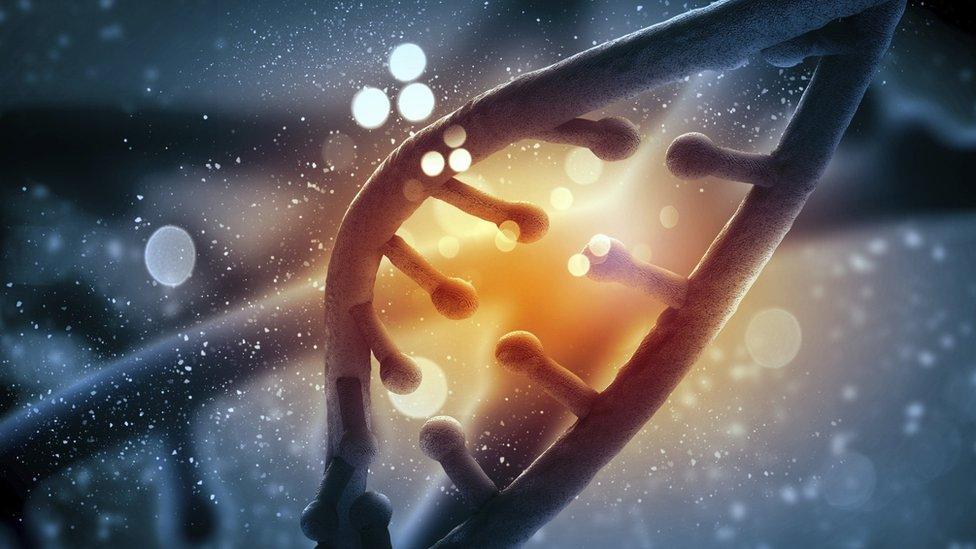
Sir Harpal Kumar, the chief executive of Cancer Research UK, said: "We hope that, one day, treatments based on the specific characteristics of the tumour, including the genetic make-up, can be offered to all patients - and this latest phase of the 100,000 Genomes Project is another important step towards this."
The project will also aim to uncover why tumours develop. The three sisters might have been at a genetically higher risk of developing cancer.
Mary told the BBC: "We agreed to take part because we don't have the common BRCA 1 or 2 genes [which led Angelina Jolie to have her breasts removed] so it could help to find a gene that hasn't been identified yet.
"And it opens it up for the rest of our family to be tested and for everyone else out there that might be facing a similar situation."
Rare diseases
The 100,000 Genomes Project is spilt into two halves, one looking at cancer and the other rare diseases.
This month, the first children with debilitating "mystery" rare diseases were given a diagnosis as part of the study.
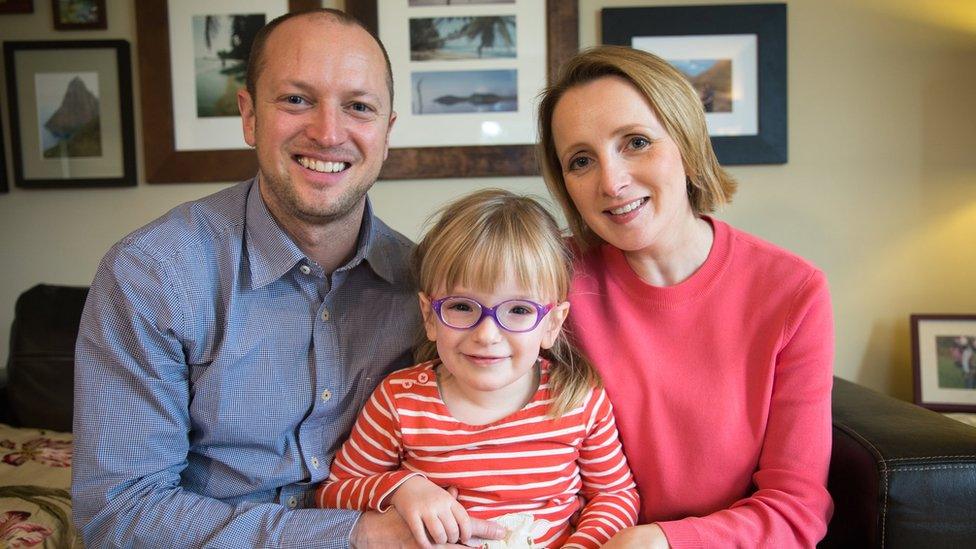
Georgia Walburn-Green with mum Amanda and dad Matt
Four-year-old Georgia Walburn-Green's condition had baffled doctors and specialists.
They had been unable to explain why she was growing slowly, had damaged eyes and kidneys and is still unable to talk.
The 100,000 Genomes Project was able to identify the gene responsible for her condition.
Life Sciences Minister George Freeman said the start of the cancer phase was a "significant milestone in the revolutionary 100,000 Genomes Project".
He said: "It will help to unlock our understanding of the causes of this devastating condition, make the UK a leader in genetic research, and provide better diagnosis and more targeted treatment for thousands of NHS patients across the UK."
Follow James on Twitter, external.
- Published12 January 2016
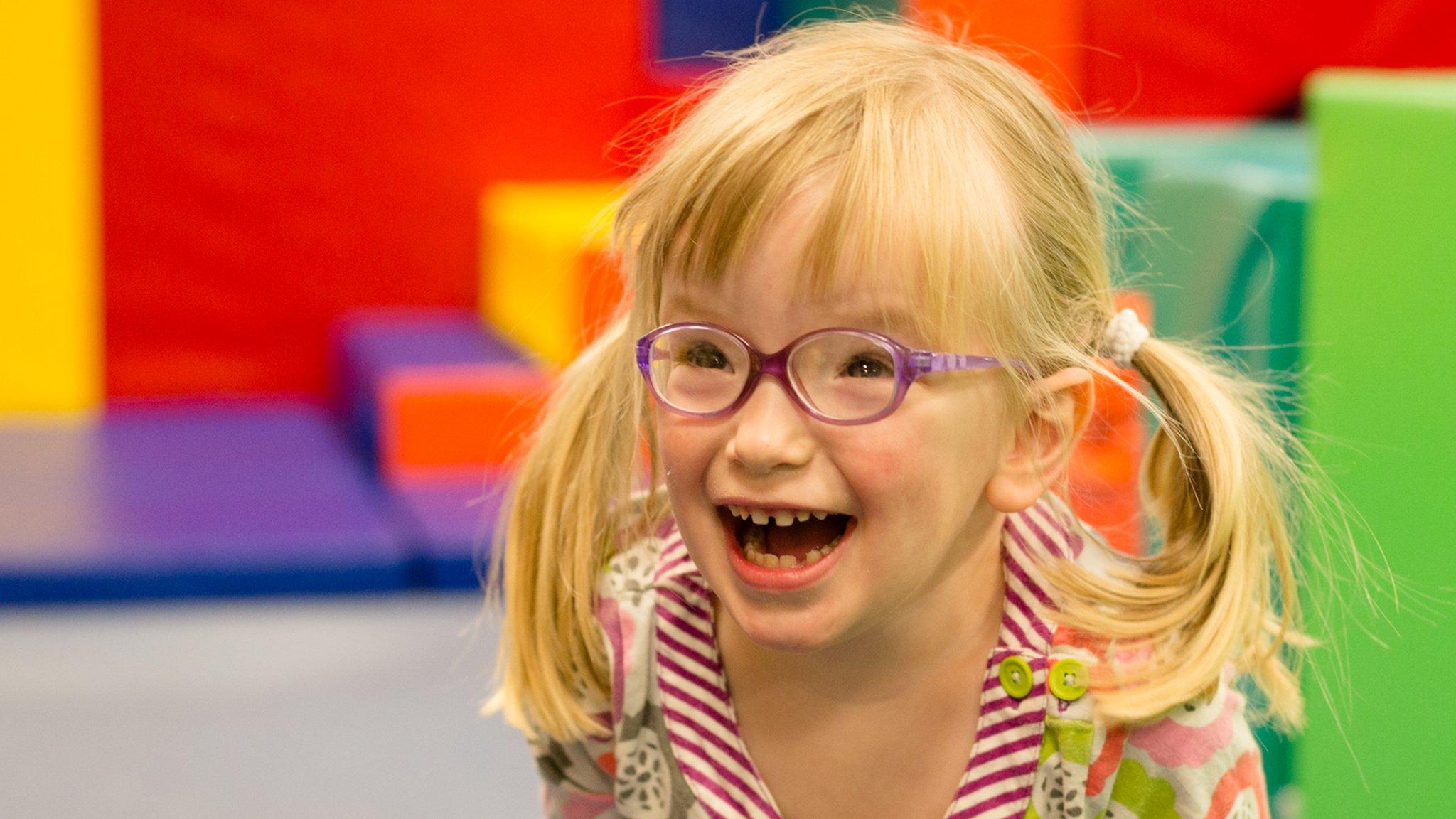
- Published22 December 2014
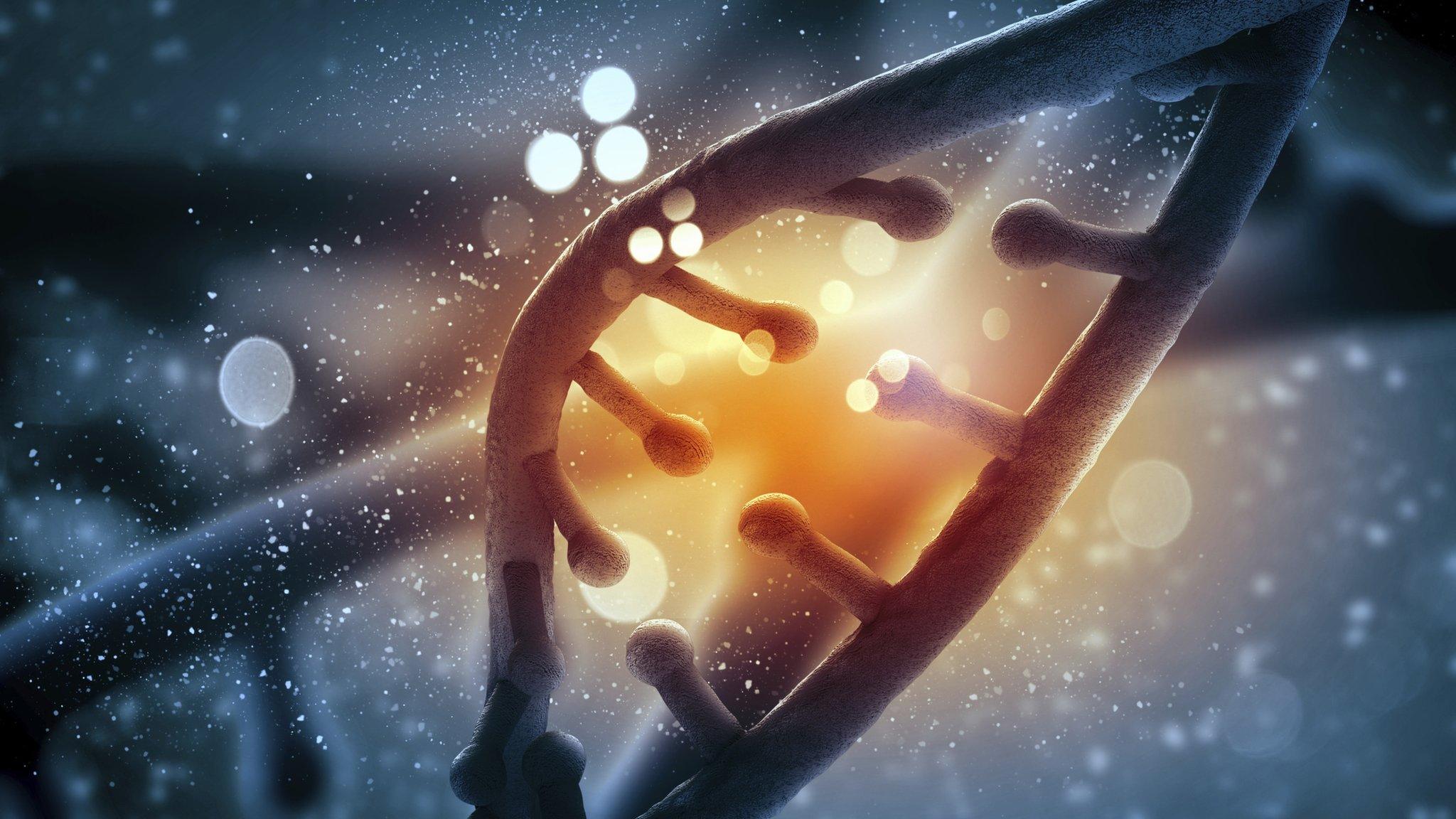
- Published1 August 2014
